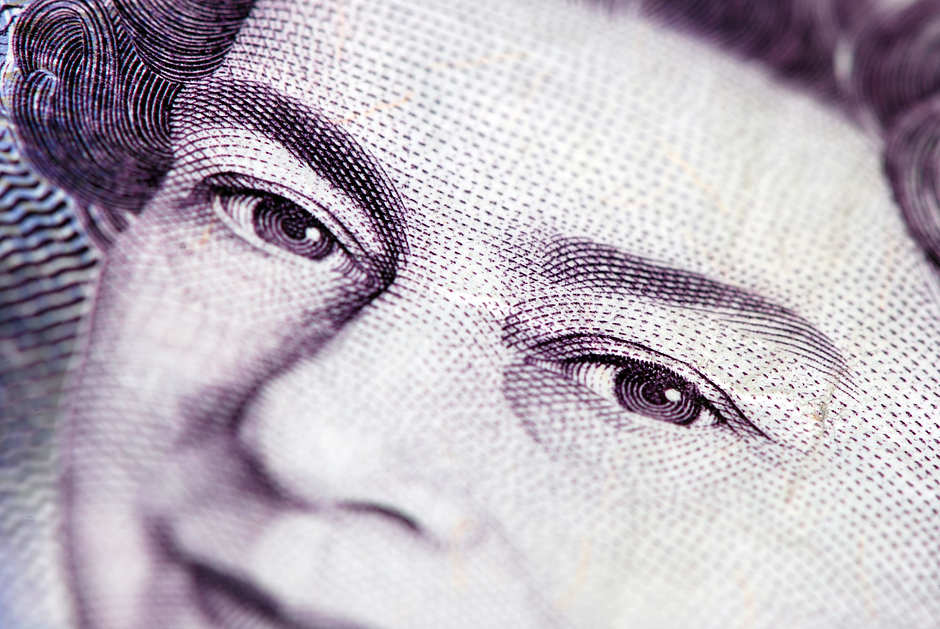GBP/USD trades above 1.2650, upside potential seems limited due to cautious Fed
- GBP/USD holds thin gains as the US Dollar corrects downwards despite cautious Fed officials.
- The upside of the pair could be restrained due to safe-haven flows amid the escalated Russia-Ukraine war.
- A hotter UK inflation report has bolstered the BoE caution toward future interest rate reductions.

GBP/USD edges higher to near 1.2650 during the Asian trading hours on Thursday. This upside of the pair could be attributed to the softer US Dollar (USD). The US Dollar Index (DXY), which measures the value of the USD against its six major peers, holds ground near 106.50 at the time of writing.
However, the downside risk for the US Dollar may be constrained due to the cautious remarks from Federal Reserve (Fed) officials. Boston Fed President Susan Collins stated on Wednesday that while more interest rate cuts are necessary, policymakers should proceed cautiously to avoid moving too quickly or too slowly, according to Bloomberg.
Meanwhile, Fed Governor Michelle Bowman highlighted that inflation remains elevated over the past few months and stressed the need for the Fed to proceed cautiously with rate cuts.
A Reuters poll indicated that nearly 90% of economists (94 out of 106) anticipate a 25bps cut in December, lowering the fed funds rate to 4.25%-4.50%. Economists predict shallower rate cuts in 2025 due to the risk of higher inflation from President-elect Trump's policies. The fed funds rate is forecasted to be 3.50%-3.75% by the end of 2025, which is 50bps higher than last month’s projection.
The upside potential for the GBP/USD pair seems restrained due to safe-haven flows amid the escalated Russia-Ukraine conflict. On Wednesday, Ukraine launched a volley of British Storm Shadow cruise missiles into Russia, marking the latest deployment of Western weaponry against Russian targets. This follows Ukraine's use of US ATACMS missiles the previous day.
On Wednesday, a stronger-than-anticipated UK inflation report bolstered the Bank of England's (BoE) cautious approach toward future interest rate reductions. UK CPI inflation surged to 2.3% year-over-year in October, marking a six-month high, up from 1.7% in September and beating forecasts of 2.2%. Meanwhile, Core CPI, which excludes the more volatile food and energy prices, climbed to 3.3% over the same period, outpacing market predictions of 3.1%.
(This story was corrected on November 21 at 08:00 GMT to say, in the first paragraph, This upside of the pair could be attributed to the softer US Dollar, not the downside.)
Pound Sterling FAQs
The Pound Sterling (GBP) is the oldest currency in the world (886 AD) and the official currency of the United Kingdom. It is the fourth most traded unit for foreign exchange (FX) in the world, accounting for 12% of all transactions, averaging $630 billion a day, according to 2022 data. Its key trading pairs are GBP/USD, also known as ‘Cable’, which accounts for 11% of FX, GBP/JPY, or the ‘Dragon’ as it is known by traders (3%), and EUR/GBP (2%). The Pound Sterling is issued by the Bank of England (BoE).
The single most important factor influencing the value of the Pound Sterling is monetary policy decided by the Bank of England. The BoE bases its decisions on whether it has achieved its primary goal of “price stability” – a steady inflation rate of around 2%. Its primary tool for achieving this is the adjustment of interest rates. When inflation is too high, the BoE will try to rein it in by raising interest rates, making it more expensive for people and businesses to access credit. This is generally positive for GBP, as higher interest rates make the UK a more attractive place for global investors to park their money. When inflation falls too low it is a sign economic growth is slowing. In this scenario, the BoE will consider lowering interest rates to cheapen credit so businesses will borrow more to invest in growth-generating projects.
Data releases gauge the health of the economy and can impact the value of the Pound Sterling. Indicators such as GDP, Manufacturing and Services PMIs, and employment can all influence the direction of the GBP. A strong economy is good for Sterling. Not only does it attract more foreign investment but it may encourage the BoE to put up interest rates, which will directly strengthen GBP. Otherwise, if economic data is weak, the Pound Sterling is likely to fall.
Another significant data release for the Pound Sterling is the Trade Balance. This indicator measures the difference between what a country earns from its exports and what it spends on imports over a given period. If a country produces highly sought-after exports, its currency will benefit purely from the extra demand created from foreign buyers seeking to purchase these goods. Therefore, a positive net Trade Balance strengthens a currency and vice versa for a negative balance.
Author

Akhtar Faruqui
FXStreet
Akhtar Faruqui is a Forex Analyst based in New Delhi, India. With a keen eye for market trends and a passion for dissecting complex financial dynamics, he is dedicated to delivering accurate and insightful Forex news and analysis.

















